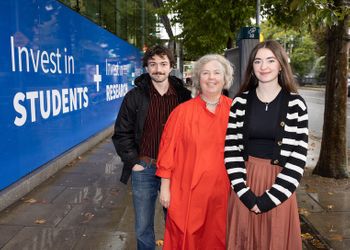
Current Funding Landscape and Its Consequences
The United Kingdom’s universities and research institutes have long relied on a combination of tuition fees, research grants and private sponsorship to sustain their operations. In Ireland, the same model is coupled with a historically low level of state support. The outcome? Universities face chronic cash flow problems, ageing laboratories and an increasing student‑staff ratio.
- Over one third of research equipment is already obsolescent, projected to reach 80 % by 2030.
- Students in Irish universities enjoy a 21:1 student‑staff ratio, whereas the EU average is 15:1.
- Only a fraction of research output is published in high‑impact journals when compared with peers in the UK and Germany.
These constraints curb the ability of Irish academic staff to pursue ambitious projects and limit the transfer of discoveries into commercial products that could create jobs in the country.
The Economic Case for Investment
In a knowledge‑driven economy, universities act as engines of innovation. Recent data from the Trinity College Dublin Institute of Neuroscience demonstrates how an €2 million state‑of‑the‑art wearable brain scanner has already produced insights into epilepsy, dementia and ADHD that could lead to new therapies. Similar breakthroughs require continued funding for equipment, personnel and cross‑disciplinary collaboration.
Quantitatively, the Irish government could gain up to 3 % of GDP by bolstering research investment. The spin‑out track record at Trinity – 30 start‑ups, 800 jobs and €350 million in private funding over five years – is an illustrative example. These ventures depend on a cycle of discovery, prototyping and market entry that would stall without fresh capital inflows.
Key Levers for Building a Sustainable Funding Model
1. Strengthen Government Grants
Policy proposals submitted to the upcoming Budget 2026 already call for a €378 million package to close historic gaps. Expanding the Research Excellence Framework and simplifying grant application procedures would encourage more researchers to apply for competitive funding, improving the overall output quality.
2. Encourage Private‑Sector Partnerships
Public‑private partnerships can accelerate technology transfer. Universities should formalise collaboration agreements that protect intellectual property while sharing risk and reward with industry. Incentivising SME involvement is particularly effective as 45 % of Trinity’s industry collaborations involve small businesses.
3. Adopt Outcomes‑Based Funding
Link a portion of infrastructure funds to demonstrable outcomes such as patents filed, licences granted and commercialization cases. This approach ensures accountability and aligns university research with national economic priorities.
Impact on Students and Faculty
Students stand to gain from reduced fee pressure and enriched learning environments. Faculty members experience less administrative burden as research administrations are expanded to support grant procurement. Consequently, research productivity rises, leading to higher publication impact and better career prospects for graduates.
What Stakeholders Can Do Today
- Policymakers: Adopt the 2026 investment roadmap and introduce tax incentives for research‑related private investment.
- Industry Executives: Engage in joint research projects and fund scholarships that target emerging technologies.
- Students: Seek out research assistantships and participate in international consortiums to broaden experience.
- Academic Leaders: Build strategic plans that quantify research ROI and present these to stakeholders.
Conclusion: A Call to Action for Ireland
Without a dedicated and sustainable funding framework, Ireland risks losing its competitive standing in global research. Investment in both students and research infrastructure is not an expense but a catalyst for growth. By aligning government policy, industry partnership and academic strategy, the country can foster a thriving ecosystem that delivers lasting socioeconomic benefits.
Submit your application today to join a forward‑thinking community that is shaping the future of Irish research. Learn more about available programmes and discover how you can contribute to transformative science.
Have questions or want to share your experience? Write to us – our doors are open for discussion on the path to sustainable higher education funding.
Explore related insights on research outcomes and student experience to stay informed about how funding shapes opportunities.

